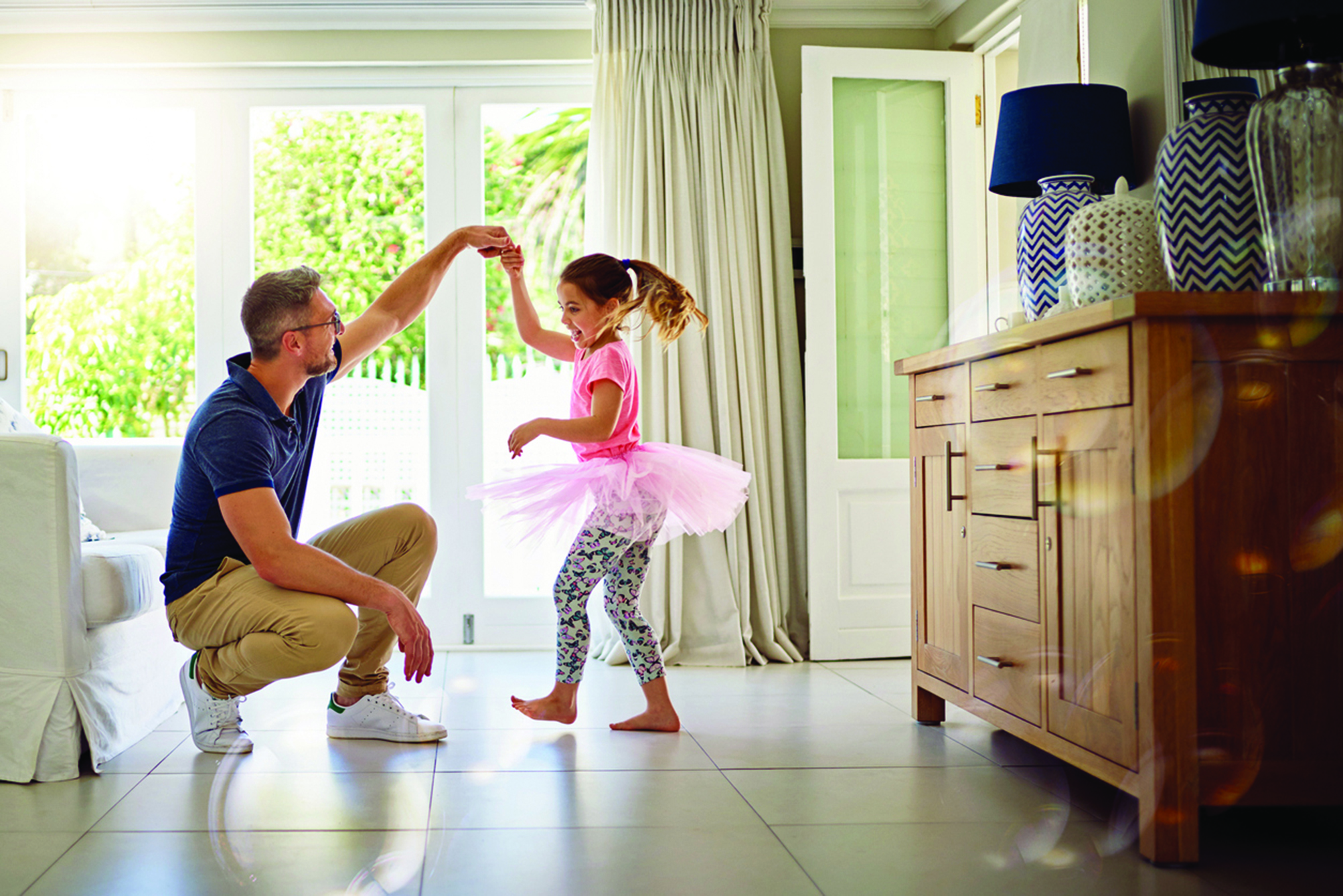Building Coordination

Falling over, walking into furniture and being unable to catch a ball are familiar territory to parents of young children. Claire Allfree looks at ways to help improve your child’s coordination.
My friend’s three year old is a bright little thing but she has terrible coordination. Where other children run, skip and catch, she totters, tumbles and drops the ball. At her recent sports day, all the children in her nursery class picked up impressive speed in the sack race but poor Milly barely made it to the finish line. She kept her beaming smile but still, it can be frustrating when your child struggles to run or throw a ball – or jump in a sack – with the same ease as his or her peers.
The importance of good coordination in young children is increasingly acknowledged by developmental experts. You may have heard of a condition known as dyspraxia which affects general motor skills and can even impact on a child’s ability to wave at someone or use a knife and fork. But the good news is there are plenty of ways you can help your child improve their coordination. Better still, all of them are fun.
1. Basic play
Basic play is a great way to encourage general motor skills, says health and wellness expert Erica Patino. Old fashioned games such as hopscotch, wheelbarrow races, walking along a fallen tree branch or even simply rolling down hills are all great ways of developing muscle control and general body awareness. All children love bubbles; encourage them to use their hands to pop as many as possible or to ‘bounce’ one on the palm of their hand. My child’s primary school teacher also stresses the importance of good coordination in learning to control a pencil properly. She suggests messing about with pegboards and playdough and practising safely with scissors or tweezers will all help your child develop fine motor control. If your child is school age, you can even encourage them to draw letters in the sky with their fingers, or use sticks with ribbons attached. A great way to associate learning with having fun.
2. Dance
You can often spot the adults who went to ballet class at a young age, says Cherese Binedell, a professional dancer and pilates teacher. They are the ones who have no problem catching a ball or balancing on one foot. She suggests creating an improvised ballet barre at home and practising basic dance movements with your child by getting them to lift their left leg and arm while keeping the right side of the body completely still, and then swapping to left leg with right arm, and so forth. Or encourage them to bend at the knees, first with their feet turned out on the ground, and then on tip toes, and use music to encourage disciplined movement. Better still join a dance class as the learning structure will challenge your child’s body more and therefore improve their coordination (see perform.org.uk/x for our street dance classes).
3. Mindfulness
Mindfulness might be the adult buzzword of the moment but it can be an incredible tool for children, says Brilliant Being’s Sarah Salmon, who teaches yoga, mindfulness and relaxation techniques to young people. It encourages body awareness which in turn will help your child develop good motor skills and posture. She suggests encouraging your child to become aware of bodily sensations, such as the feel of water on skin. Get them to inhale and exhale deeply and ask if they can feel their tummies filling up, like a balloon. Get them to breathe onto a mirror and draw pictures in the condensation and then ask them how it feels on their finger – wet, hot, cold? She stresses that, contrary to what you might expect, most children are actually very good at paying attention to the present moment since they don’t have much concept of ‘past’ or ‘future’. By encouraging them to simply sit still and breathe, you can help them become more connected to their bodies.
4. Physical games
My four year old is a demon with a football. She can drop kick with a precision that leaves her clumsy mum breathless. Her coordination isn’t bad either, perhaps partly because she’s been kicking a ball about in the street from as soon as she could toddle and plays football every Saturday. Her teacher says even basic ball games are a great way to encourage strong motor skills in children. Practise simple throwing and catching with your child, or use a wall to bounce a ball against. Not only will you be improving your child’s coordination, you might even nurture a future England star.
Perform weekly drama classes for 4–7s and 7–12s and dance classes for 6–12s all work to boost coordination through games, movement and dance. Why not try a free trial? Visit perform.org.uk/x to book online.













Leave a comment